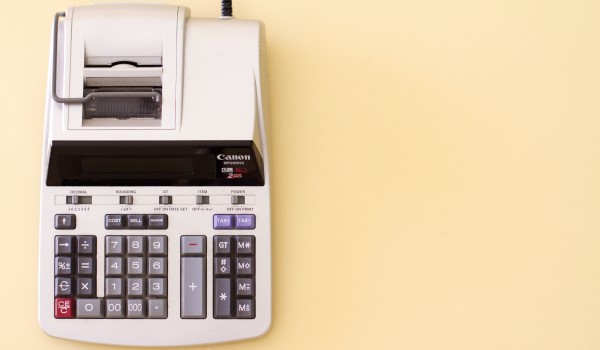Let’s kick off with a dictionary definition to make things really clear, a pension’s an amount of money paid regularly by the government or a private company to a person who has stopped working due to age or inability. Simple, right? Well, there’s a few different areas to cover with pensions but essentially that’s it.
Why’s it important? Looking after your pension is the first step to making sure you’re set for later life. When you don't work anymore and don’t receive a salary or a wage because you’re retired it’ll become your regular income. This article should set you on the way to understanding your pension, how much you should receive and how you can plan. Here’s five steps to get pension savvy.
1. Future funds?
Whatever your age, it can be scary thinking about retiring and relying on a pension pot for the future, but it creeps up on us all and it’s best to be prepared.
Consider what your monthly expenses are now and have a think about what they could be at the time that you retire. Take into account some or all of these things.
- Inflation
- Whether you’ll have children to support during your life
- Your mortgage, will you be mortgage free by the time you retire?
- Retirement plans. (If you’re looking forward to travelling the world when you retire, you’ll definitely need a chunkier pension pot than someone that’s looking forward to a slower pace of life.)
Remember, you’ll need 35 qualifying years of National Insurance contributions to qualify for the full State Pension, regardless of your age. You can check your state pension age at Gov.uk for more information.
Wait, what’s National Insurance again?
National Insurance is a mandatory payment, almost like a tax that you pay if you’re 16 or over and are either:
- an employee earning above £184 a week (this will usually come out of your pay before you receive it, and it's normally all sorted by your employer)
- self-employed and making a profit of £6,515 or more a year
You might be able to pay voluntary contributions to avoid gaps in your NI contributions and you need a National Insurance number before you can start paying National Insurance contributions.
2. See how much you have
Search for the Department of Work and Pensions calculator online and check your state pension at Gov.uk to work out how much you’ll potentially have later in life. If you have a pension, your current provider will also send you a statement every year to let you know how much you have in your pot (make sure they have your current address or email address!). Most pension providers also have online portals where you can log in and see how much you’re accumulating over the years. Keep an eye on it as you would with your online banking.
What if I’m not sure whether I have a pension or not?
If you’re employed, you’ll have a pension if all the following apply:
- you’re classed as a ‘worker’
- you’re aged between 22 and State Pension age
- you earn at least £10,000 per year
- you usually work in the UK
If you have more than one pension from over the years, (if you’ve worked for a number of different companies, you probably will have) it can sometimes be a good idea to ‘consolidate’ them together. This basically means popping them all in the same account so that they’re all combined. There can be pros and cons to this so read up on what to do with multiple pensions for more information.
And, if you’re not sure, remember to talk to a financial adviser before you take any action. But, it's a good idea to look into independent financial advice before you consolidate any pensions to make sure you're happy with the decision.
3. Up your contributions
If you’re all set up with your current pension, why not review the contributions that are being paid into it from both your employer and you. If you’re able to, you could consider increasing the level of your contributions. Small increases from your monthly pay early on in your pension saving can lead to large increases in the future.
Pensions benefit from compound interest which is essentially interest on top of interest. The sooner you get money into it, the more you will have at retirement. Some employers may be willing to match any increase in personal contributions, so it could be worth discussing this with your workplace.
What if I work for myself?
If you’re self-employed then there are lots of options for personal pension plans out there and you can even be employed by your own company sometimes and pay into your own employee pension fund. Do your research and potentially speak to a financial adviser if you feel like you need help with the decision. Expert advice from a financial adviser is a great way to really get your head around future finances as they’re qualified to explain everything to you in a way you’ll understand.
Remember, the size of your pension pot will be subject to investment performance and isn’t guaranteed.
4. Look into the Lifetime ISA
The Lifetime ISA isn’t a pension, nor is it a replacement for a pension but it is another way to put some money away for retirement and get something back for it. Just like using it for your first home, when you save for retirement using a Lifetime ISA you get 25% back from the government as a bonus – plus interest.
Those two reasons are the only two circumstances in which you can use a LISA to save, if you withdraw your money for an ineligible reason then you’ll get back less than you put in as each withdrawal will be subject to a 25% charge.
With retirement savings, once you’ve opened the LISA between the ages of 18 and 39 you can keep saving until you’re 50 and gain the maximum bonus of £1,000 each tax year. Then, your account will mature and continue earning interest until you’re 60 when you can withdraw it without any penalties.
If you currently have a Lifetime ISA and you’re using it to save for your first home, you don’t have to close it after you’ve bought your house, you could leave it open, keep saving and continue to reap the rewards of the 25% bonus.
Read more about the Beehive Money Lifetime ISA and open one online today with £1.
5. Rinse and repeat
Remember, just because you’ve looked at your pension and retirement savings once it doesn’t mean they're sorted forever. Try to review it regularly and consider making additional savings whenever you can. Regularly reviewing your pension and your savings leading up to retirement should offer you the potential to maximise your returns. Look after your pension and your savings and they should look after you in the future.









